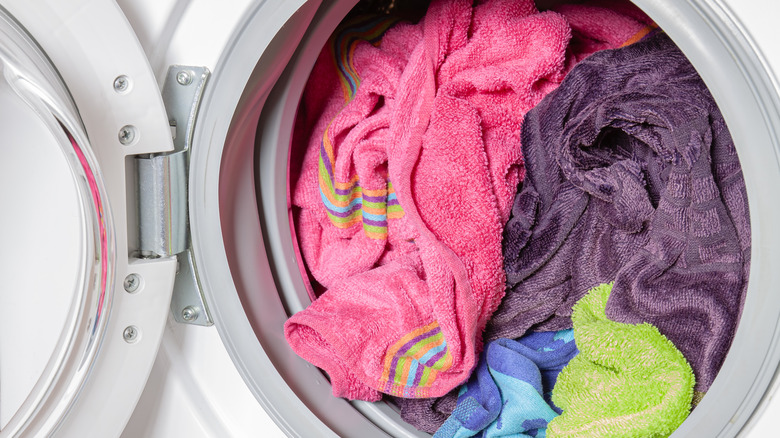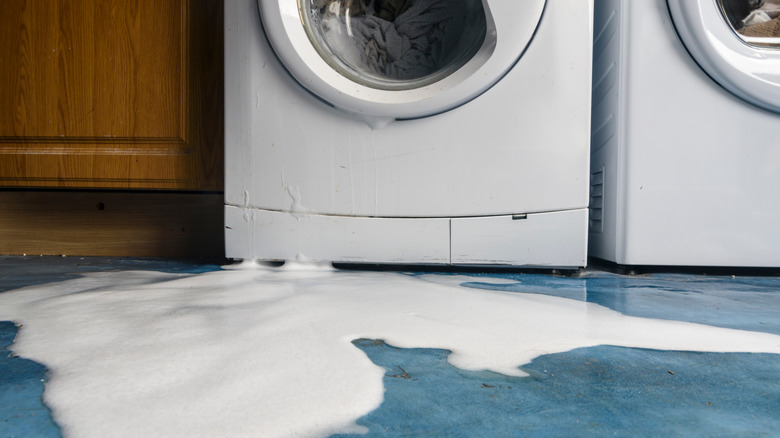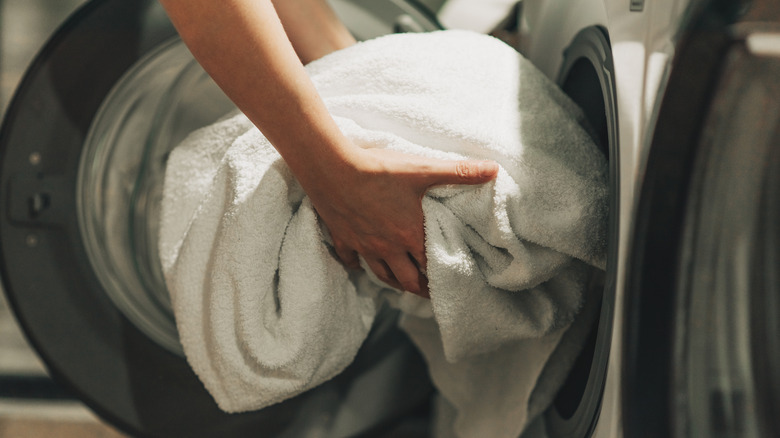Signs That Your Washing Machine Is Too Overloaded
If you've started to notice things indicating your washing machine isn't really cleaning your clothes or a funky smell coming from inside the drum, you could be dealing with an overloaded washer. While it may be tempting to throw every dirty item into the washer to save water, in the end, you may be causing long-term damage to your machine. (Plus, you're wasting time by having to rewash an entire load.) Not only can overloading prevent your clothes from being deep cleaned, but it can also cut down your machine's lifespan. The weight of excess laundry can strain the washer's parts, such as the seals, causing them to break down sooner than later.
If you find yourself overstuffing clothes and linens into your machine before starting the cycle, you might need to try new tactics, like splitting up your loads beforehand or trying the palm trick. Otherwise, you might have to purchase a whole new washer, which is typically hundreds of dollars. Washing machines should last anywhere from eight to 10 years; however, the weight of extra laundry can strain the motor and deteriorate the machine. You may eventually see signs that you'll need to replace your washing machine drum, if not the entire appliance, if you keep overloading.
How to tell if you're overloading your washer
There are a few signs to look out for if you think you may be overloading your washing machine. Besides not being fully cleaned, your laundry might still be dripping wet at the end of the cycle or have residual soap left on the fabric. You can also be able to tell by simply listening to the appliance; overloaded washers tend to make more noise, like squealing or banging sounds. If you tend to lose a lot of socks or other small items in the washer, it might be due to overloading. When there are too many items inside, small pieces like socks, underwear, and debris from pants pockets can be shoved into the drainage line. Note that you should also check whether you're underfilling your washing machine, as that can waste water. The key is finding the perfect balance.
An overloaded washer can't thoroughly clean your clothes, as they need extra space to tumble. If the clothes are packed in too tightly, these items won't get the chance to be fully washed. If you find you have to repair your washing machine frequently, despite it being a relatively new appliance, you might be overloading it. Another sign of overloading is if your machine tends to overflow and spill out onto the floor, which is a mess no one wants to have to clean up.
How to avoid overloading your washing machine
The next time you start a cycle of laundry, you might want to confirm your washing machine's capacity. Check your user manual for load limits and directions on how high to fill the drum. Your washer's limit will determine how many items you should put inside, and the different designs can manage varying load sizes. Standard machines, for example, can hold about 12 to 16 pounds of laundry washers, while large-capacity washers can hold up to 25 pounds.
The basic rule of thumb when checking your laundry load size for overloading is the palm trick. Once your laundry is inside the washer, stick your hand inside. If you can easily fit your hand between your items and the side of the washer drum, your clothes will have enough space to tumble. You might even be able to add more items inside if there is room. If you put your hand in and the clothes are tight against the drum, it's overloaded.


